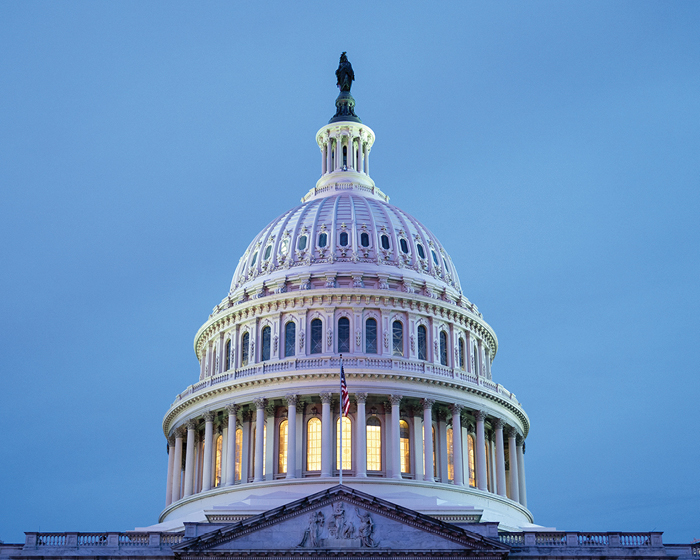Key Takeaways
- Treasury issued three pieces of guidance this week relating to the One Big Beautiful Bill Act, despite the shutdown affecting all government departments.
- The guidance relates to the deduction for auto loan interest, the new informational reporting threshold, and the employee retention credit.
- Treasury officials say the shutdown won’t prevent them from implementing the OBBBA.
- Treasury listens to concerns over new tips deduction.
- Expiration of the Obamacare enhanced credits approaches as parties search for plan.
The current government shutdown, now nearing a full month, has caused furloughs of thousands of employees across all federal agencies. But it hasn’t stopped the Department of the Treasury and the Internal Revenue Service from issuing guidance, including for the implementation of the One Big Beautiful Bill Act.
Treasury and the IRS on Tuesday issued transitional guidance for the OBBBA’s $10,000 deduction for interest on loans for American-made automobiles. The guidance states that lenders can meet 2025 reporting requirements, and avoid IRS penalties, if they provide borrowers with statements indicating their total amount of interest for the year, or provide this information in an online portal.
This wasn’t the only OBBBA-related release from Treasury issued this week. The department also provided “Frequently Asked Questions” pages for the bill’s new rules on the employee retention credit, as well as the 1099-K informational return. The OBBBA raised the 1099-K threshold for third-party settlement organizations (such as online payment services) to $20,000 and 200 transactions within a year.
All of this guidance, relating to the current tax year, underscores the urgency of Treasury’s task. The OBBBA included many provisions which take effect in 2025, and has left many taxpayers searching for answers on how to comply. Aside from the tax benefits such as the deduction for auto loan interest and tipped or overtime income, the OBBBA’s expansion of 100% bonus depreciation and expensing of R&D costs under Section 174 both take effect as of January 2025.
Speaking at a recent conference of online tax compliance providers, Treasury Assistant Secretary for Tax Policy Kenneth Kies said the shutdown would not prevent Treasury from issuing needed guidance.
“Yes, there are some people who have been furloughed,” he said. “We have a plan once they come back to catch up with what has slipped. We are very keenly focused on getting the guidance out.”
Recent Tax Pieces:
Brief IRS Hearing Offers Little on Tips Deduction Regs – Trevor Sikes, Tax Notes ($):
“Employers within the hotel lodging industry are eager for guidance from the IRS regarding documentation and reporting procedures for tax year 2025 to help ensure timely compliance,” Brady said about the provision, which allows single filers who earn up to $150,000 annually or married couples who earn up to $300,000 to deduct up to $25,000 in qualifying tipped income.
Republicans are barreling toward an Obamacare subsidy cliff — with no unified plan – Alex Gangitano, Meredith Lee Hill, Mia McCarthy and Myah Ward, Politico:
On Nov. 1, most consumers can start shopping for next year’s ACA plans. But without legislation to extend the enhanced subsidies beyond this calendar year, those plans will appear on enrollment websites as substantially more expensive than this year’s out-of-pocket costs.
Treasury Urged to Finish Clean Fuel Credit Rules by Lawmakers – Chris Cioffi, Bloomberg Tax ($):
“This lack of clarity has left capital stranded, stalling investments that are essential for fueling American jobs and strengthening our domestic energy sector,” the letter sent to Bessent earlier this week said.
Lawmakers emphasized the need for clear guidance on how the credit can be claimed, validated, and monetized, arguing that the lack of clarity has stalled investments in the biofuels industry.
‘Robot Tax’ Proposal Sparks Skepticism Over Its Practicality – Cady Stanton, Tax Notes ($):
“I think the general idea is good in the sense that there is going to be major displacement in the labor market because of the uptake of artificial intelligence, and it’s being taken very quickly indeed,” Vincent James Hooper of the SP Jain School of Global Management said. “But in terms of the practicalities, I think it’s going to be exceedingly hard to implement a robotic tax.”
Modeling Needed To Gauge Private Equity's Interest Deduction – Kat Lucero, Law360 Tax Authority ($):
However, Section 163(j) has caveats that would require comprehensive modeling to analyze the financial performance of a private equity firm's potential sale of that business, according to practitioners.
Make a habit of sustained success.



